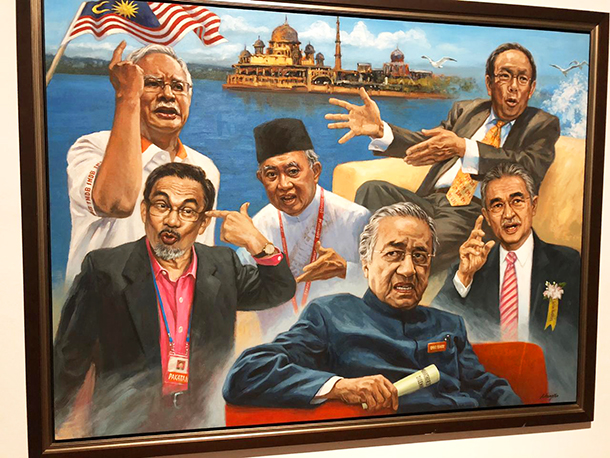The Sadness of Submissive, Quietly Recolonized Malaysia

I do not talk much about the previous political era, and about the return of “Doctor M” to power. Nor do I write about who used to sponsor Anwar Ibrahim, and who then decided that it is unwise, for now, to sponsor Anwar, shouting that it is time to give “another chance to Doctor M”. Let me just say that almost all these decisions came from abroad.
Andre Vltchek, 21st Century Wire
I am not sure when and how it happened, or even what precisely took place, but suddenly, nothing feels the same, and nothing feels right in Malaysia.
Several years ago, things used to be totally different here. One would land at KLIA (Kuala Lumpur International Airport) – in the past one of the most modern and well-run mid-sized airports in the world, located some 70 kilometers from the city – and feel the omnipresent optimism and pride.
Malaysia was on the rise: a fast train was connecting the airport to the sprawling metropolis. It was passing near the famous Formula-1 circuit, the new capital city of Putrajaya, a modern city designed for science and technological research – Cyberjaya – and finally terminating at the modern KL Sentral train station and public transportation hub.
Futuristic Kuala Lumpur also counted with a super modern and elegant concert hall fully dedicated to classical music. It was right under the Petronas Towers, once the tallest building in the world. Modern monorail and driverless trains were transporting people in style to different corners of the city. Bookstores were well stocked (censorship was present, but everyone knew that Malaysian censors were too lazy to read). Extreme, Indonesian-style, misery hardly existed.
Indeed, Malaysia had ‘made it’ – it had landed itself on the list of the highest development index countries (Human Development Index, HDI, measured by UNDP) – together with countries such as Chile and Argentina, Russia and Qatar, as well as the nations of Europe and North America.
Malaysia was manufacturing its own car brand – Proton – and was teaming up with Japan, hoping to co-produce aircraft.
Nightclubs were packed, political humor thriving, and even religions were not immune to criticism, as long as the punches were being delivered in an ‘appropriate’ and secular environment, behind the curtains of bookstores and private events.
In those days, I loved visiting Malaysia. I loved living there, for weeks and months.
Next door, a collapsed Indonesia felt like the de-composing carcass of a huge fish: covered by smog, intolerant, intellectually destroyed, racist and at war with itself and its colonies. I used to escape to Kuala Lumpur for weeks; in order to gain perspective, in order to eat well, to visit theaters, concerts, parks, to interact with my Malaysian friends – writers, filmmakers, and academics.
Jakarta and Kuala Lumpur felt as if they were existing on two different planets. A 1 hour and 40 minutes’ flight, and everything would diametrically change. Suddenly it was possible to walk under the trees and on wide sidewalks, to attend great concerts, to read to excited audience from my books, and above all, to be understood.
And yet, yet even then, there was something rotten in the intellectual fabric of Kuala Lumpur. It was hard to detect, to explain, but it was constantly there, right under the surface.

